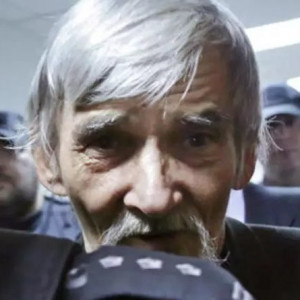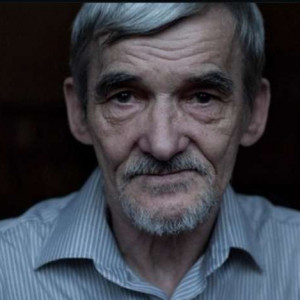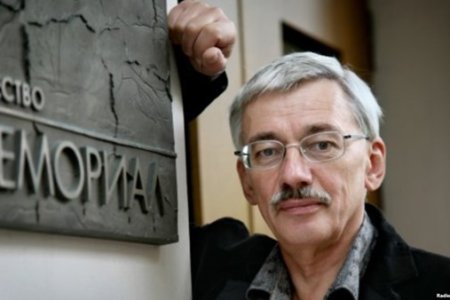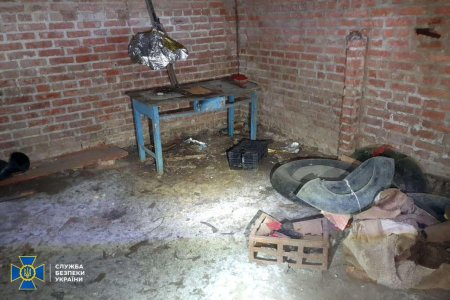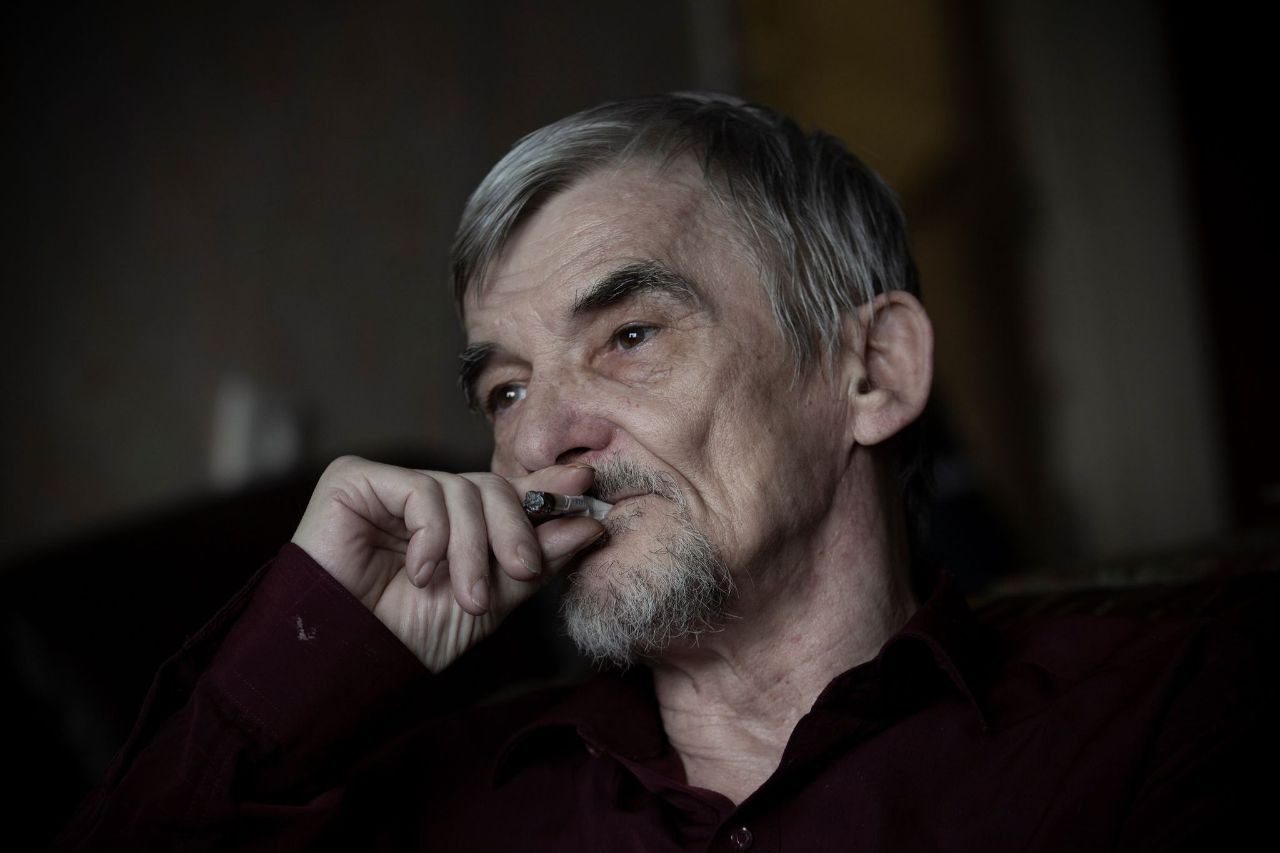
Yury Dmitriev, world-renowned Russian historian, head of the Karelia branch of the Memorial Society and political prisoner, is spending his fourth term in a punishment cell in the space of just two months. Having defied widespread national and international protest over evidently fabricated charges, the Russian authorities are now using a harsh-regime prison colony and absurd pretexts to step up the pressure on a courageous historian who refused to be silenced.
The Memorial Society, whose enforced dissolution coincided with the final, monstrous sentence against Dmitriev, reported on its Telegram channel that the historian had, on 3 November, again been sentenced to a 10-day period in SHIZO, or a punishment cell. The conditions in Russian prison colonies are already appalling, and those in a SHIZO especially gruelling even for those much younger than Dmitriev and in better health. This is the longest period to date, with the three previous terms in September first of three days, then twice of five days. The pretexts in each case were strictly formal – failing to greet prison staff, for example, and can easily be made up in order to throw a person in SHIZO.
Dmitriev was sent to the Moldovian harsh-regime prison colony in May this year, and Memorial warns that the pressure on him is intensifying.
It should be said that Crimean Tatar and other Ukrainian political prisoners, held in similar conditions, are also regularly subjected to long periods in SHIZO, with one of the motives probably to keep them in isolation and in an information vacuum. It is quite possible that the same is planned in the case of Dmitriev, whose age and state of health after five years in Russian captivity make such treatment of especial concern.
The persecution of Yury Dmitriev coincided with overt efforts by the current regime in Russia to both rewrite history and to crush civic organizations like the Memorial Society and its sister NGO, the Memorial Human Rights Centre. Dmitriev had worked tirelessly for decades to uncover the crimes committed during the Terror of the 1930s, the unmarked mass graves of the regime’s victims and the names also of the perpetrators.
He was particularly well-known in Ukraine for his role in uncovering the mass graves at the Sandarmokh Clearing in Karelia. The graves include the victims of the mass killing by quota of Russians, Ukrainians and other prisoners of the Solovetsky Labour Camp. From 27 October to 4 November 1937, 1,111 prisoners were executed by the NKVD, including 289 Ukrainian writers, playwrights, scientists and other members of the intelligentsia. Since the discovery of the graves in 1997, Sandarmokh had increasingly become a place of pilgrimage where each year International Days of Remembrance of the Victims of the Great Terror take place.
Although there remain differing opinions as to who was behind the persecution first of Dmitriev, and then of fellow historian Sergei Koltyrin, it is surely no coincidence that the charges against Dmitriev were concocted just months after the first attempt to radically rewrite the facts about the graves at Sandarmokh. The local historians - Yuri Kilin and Sergei Verigin - who claimed without any evidence that at least some of the graves were those of Soviet POWs killed by the Finns were both members of the Russian Military History Society. The latter was created by Russian President Vladimir Putin in December 2012, in order to “consolidate the forces of state and society in the study of Russia’s military-historical past and counter efforts to distort it”. Those who have pushed this entirely unsubstantiated theory, and evacuations at Sandarmokh, have, typically, presented proven historical facts as somehow suspect, and essentially claimed that Memorial was in cahoots with those in Russia and the west who, allegedly, want to discredit Russia and its past.
Attempts to discredit Memorial were evident from the outset in the criminal charges against Yury Dmitriev and the scurrilous program on a state-run television channel shortly after his arrest.
The tale of Russia’s prosecution of Dmitriev is so squalid and fabricated that two Russian judges were willing to risk career problems and acquit him. This was when even one acquittal in such evidently ‘political’ trials is unusual. The FSB and prosecution were, however, undeterred. New, even more grotesque charges were laid in 2018, after the first acquittal, and a new judge - Yekaterina Khomyakova from the Petrozavodsk City Court in Karelia – eventually found to hand down the 15-year sentence demanded.
First charges
Dmitriev was arrested on 13 December 2016, purportedly on the basis of an anonymous report about naked photos of Dmitriev’s adopted daughter Natasha on his computer. The timing is suspect since this ‘anonymous report’ supposedly came on 3 December, three days after Dmitriev had himself noticed that somebody had been in his home after both he and his partner were tricked into being absent. There were other dubious features as well.
Dmitriev has an adult son and daughter, and grandchildren, but had himself been adopted, and had wanted to give another child the chance of a loving home. He and his then partner adopted Natasha who had been left in a children’s home by her grandmother. She was just three, sickly and underweight, and Dmitriev says that he was advised to monitor her development, which he did, in part, through photos of her naked, with her height and weight recorded. Although Dmitriev’s entire family had welcomed Natasha as a permanent member of the family, her official status was as приёмная дочь [or foster daughter], with this meaning that Russia’s social services were always there in the background. This was the other reason that the photos were taken naked, since Dmitriev wanted to ensure that nobody could claim that the little girl was mistreated and try to take her away. There were a lot of photos when Natasha was still very small, with less and less as her development became closer to normal, and none from the age of 10.
There were 100-200 photos in all, which were initially considered by a Karelian art historian, Sergei Sergeyev to be ‘pornographic’ The court then asked for an official expert assessment, with this task given to the so-called Centre for Socio-Cultural Expert Assessments ["Центр социокультурных экспертиз"]. This centre was already notorious for supposedly ‘expert assessments’ that echoed the prosecution’s case in the trials of the Pussy Riot punk group and in rulings prohibiting the Jehovah’s Witnesses as ‘extremist’. Its maths teacher director, Natalia Nikolaevna Kryukova, and philologist Alexander Yevgenyevich Tarasov, later provided an ‘assessment’ used by the Moscow prosecutor to get the Memorial Human Rights Centre dissolved (details here). These supposed ‘experts’ claimed that nine photos, that do not have Natasha’s height and weight recorded were ‘pornographic’.
Although the folder had been filed away on Dmitriev’s computer and never circulated, the photos were used as the grounds for charges of ‘preparing pornography involving a minor’ (Article 242.2 § 2 of Russia’s criminal code) and ‘depraved actions with respect to a child under the age of 11’ (Article 135, over the same nine photos).
The claim that the photos were pornographic were firmly rejected in court by Dr Lev Shcheglov, the President of the National Institute of Sexology, as well as two other specialists who also confirmed that it was common practice in Russia to take photographs for such medical purposes. In an interview to Novaya Gazeta, Shcheglov explained that he had informed the court that he too had photos of his grandchildren without any clothes. He asked whether this was to be considered his ‘confession’ and that he too should face criminal prosecution.
Dmitriev had been charged with three offences, the third, under Article 222 § 1, ‘possession of a part of a firearm’. This was part of a rifle barrel which Dmitriev says he had found among rubbish and taken so that it didn’t get picked up and used by children).
Acquittal No. 1
Within three weeks of Dmitriev’s arrest on 13 December 2016, the Russian state-controlled TV channel Rossiya 24 had produced a scurrilous and manipulative program, clearly aimed at discrediting both Dmitriev and Memorial (details in English here) The program could only have been made in collaboration with the ‘investigators’ and confirm that this was no local vendetta against the historian and Memorial activist.
The Rossiya 24 program had spoken of the “revulsion” Dmitriev’s alleged actions must elicit, and used distortion and manipulation, as well as photos, seemingly of the little girl, to try to achieve this. The calculation was clearly that such material, as well as the fact that the entire trial was behind closed doors, would convince people of Dmitriev’s guilt.
In fact, the prosecution was very widely understood to be revenge against a historian who had devoted his life to restoring historical truth/ Despite the conveniently closed court hearings, it was clear by January 2018 that the trial was not going to plan, although prosecutor Yelena Askerova still demanded that Dmitriev be convicted of all the charges, and sentenced to nine years.
Instead, Judge Marina Nosova from the Petrozavodsk City Court, acquitted Dmitriev of the main ‘pornography’ charges, finding him guilty only of the very minor ‘possession’ charge with a sentence of 2.5 years. A total acquittal on all the charges would certainly have raised questions, since Dmitriev had been in detention for 13 months.
The acquittal was challenged by prosecutor Askerova, allegedly on the initiative of the same grandmother who had left Natasha in a children’s home as a toddler. There were no grounds, yet the Karelia Supreme Court revoked the 5 April 2018 ruling and sent the case back for retrial.
On 27 June 2018, Dmitriev was re-arrested, with Russia’s Investigative Committee now charging him with ‘acts of a sexual nature’, also against Natasha, whom he had not seen since his arrest in December 2016.
The secrecy around the trial meant that it was only learned on the eve of the second acquittal what the additional charge, the alleged ‘acts of a sexual nature’, were about. The prosecutor claimed that Dmitriev had on several occasions touched his adopted daughter around her groin. This was in connection with a period when Natasha was 8 years old and began having attacks of enuresis (involuntary urinating). If Dmitriev noticed the tell-tale smell of urine, he would, like any other parent, pat the little girl’s knickers around the area of the groin to see if they were wet, and if necessary, get her to have a wash. There is confirmation in Natasha’s medical records that she was suffering from enuresis, and that she was due to be placed in the Karelia hospital for a proper check-up soon after Dmitriev’s first arrest.
Acquittal No. 2
On 22 July 2020, judge Alexander Merkov from the Petrozavodsk City Court acquitted Dmitriev for the second time of the ‘child pornography’ charge and that of ‘depraved acts’, while acquitting him for the first time of the possession of firearms charge.
By this stage, Dmitriev had been in custody for almost three and a half years. Merkov convicted him of the charge laid after the first acquittal, the alleged ‘acts of a sexual nature’, but only sentenced him to the three and a half years that he had, in any case, spent in detention. He thus applied his right to impose a sentence considerably lower than the minimal stipulated by the criminal code, with this as close to an acquittal as you can get in Russian political trials.
Karelia Supreme Court (‘judge’ Alla Rats)
It was these acquittals that judge Alla Rats [Алла Раць] from the Karelia Supreme Court overturned on 29 September 2020, with a new ‘expert assessment’ ordered of the photos and the charges sent back for a third attempt. The same court almost quadrupled the sentence on the charge which had only appeared after the first acquittal, with the sentence now 13 years in a harsh regime prison colony.
There were glaring violations at that hearing. Two of the three judges involved in this ruling, including Rats, had passed rulings against Dmitriev in previous proceedings and should have withdrawn himself. Rats had refused to postpone the hearing until Anufriev, who was in quarantine, could be present and ignored Dmitriev’s formal rejection of the state-appointed lawyer who was being foisted on him. She then gave this lawyer (Artem Cherkasov) only 3 days to familiarize himself with a case stretching back almost four years. Memorial reported on the eve of the hearing that there was nothing to indicate that Cherkasov had even visited Dmitriev in SIZO [the remand prison]. Dmitriev was also effectively denied the possibility of defending himself. The pandemic was used as an excuse for the historian not being brought to the court and having to take part in the proceedings by a very inadequate video link. He could not hear around half of what was said in court, yet when he asked for the words to be repeated, the judge threatened to remove him from the hearing.
All of these issues were raised, and ignored, by judge Sergei Zhernov from the Third Cassation Court in St. Petersburg, who on 16 February 2021 upheld the ruling from 29 September 2020 and 13-year sentence. It became clear in October 2021 that Russia’s Supreme Court had refused to consider a cassation appeal, despite the above, and other, compelling grounds. Dmitriev’s case is already awaiting consideration by the European Court of Human Rights.
Third attempt at the Petrozavodsk City Court
Judge Yekaterina Khomyakova was reportedly in a hurry over this ‘trial’, and the verdict and sentence handed down on 27 December 2021 was identical to that demanded by the prosecutor – 15 years (with this including the years already spent in SIZO).
The EU stated stated back on 30 September 2020 that “Mr Dmitriev’s prosecution was triggered by his human rights work and his research on political repression in the Soviet period. This is yet another blatant example of unjustified and unacceptable legal pressure on human rights defenders in violation of international commitments.” On International Human Rights Day (10 December 2020), Dmitriev was named one of the 15 laureates of the prestigious Franco-German Prize for Human Rights for 2020. In May 2021, the Norwegian Helsinki Committee awarded Dmitriev the 2021 Sakharov Freedom Award.
